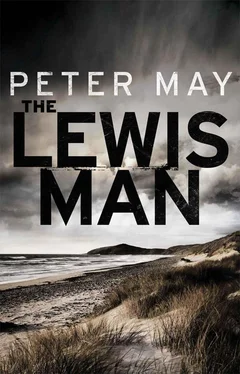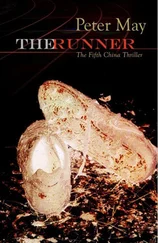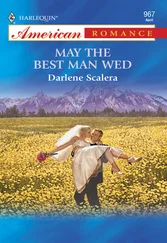Peter May - The Lewis Man
Здесь есть возможность читать онлайн «Peter May - The Lewis Man» весь текст электронной книги совершенно бесплатно (целиком полную версию без сокращений). В некоторых случаях можно слушать аудио, скачать через торрент в формате fb2 и присутствует краткое содержание. Жанр: Триллер, на английском языке. Описание произведения, (предисловие) а так же отзывы посетителей доступны на портале библиотеки ЛибКат.
- Название:The Lewis Man
- Автор:
- Жанр:
- Год:неизвестен
- ISBN:нет данных
- Рейтинг книги:3 / 5. Голосов: 1
-
Избранное:Добавить в избранное
- Отзывы:
-
Ваша оценка:
- 60
- 1
- 2
- 3
- 4
- 5
The Lewis Man: краткое содержание, описание и аннотация
Предлагаем к чтению аннотацию, описание, краткое содержание или предисловие (зависит от того, что написал сам автор книги «The Lewis Man»). Если вы не нашли необходимую информацию о книге — напишите в комментариях, мы постараемся отыскать её.
The Lewis Man — читать онлайн бесплатно полную книгу (весь текст) целиком
Ниже представлен текст книги, разбитый по страницам. Система сохранения места последней прочитанной страницы, позволяет с удобством читать онлайн бесплатно книгу «The Lewis Man», без необходимости каждый раз заново искать на чём Вы остановились. Поставьте закладку, и сможете в любой момент перейти на страницу, на которой закончили чтение.
Интервал:
Закладка:
‘Carbon dating of his hair placed him from around 400 BC. The idiots who performed the autopsy cut off his head and threw the rest of him away. Except for his feet and one finger, which are still preserved in formalin.’ He grinned and held out a hand. ‘Professor Colin Mulgrew.’
Gunn was surprised by the strength of his handshake. He seemed so slight.
Almost as if he had read his mind, or detected his wince as they shook, Professor Mulgrew smiled and said, ‘Pathologists need good hands, Detective Sergeant. For cutting through bone and prising apart skeletal structures. You’d be surprised how much strength is required.’ There was just the hint of cultured Irish in his accent. He turned back to Tollund Man. ‘Amazing, isn’t it? After two thousand four hundred years, it was still possible to tell that he’d been hanged, and that his last meal had been a porridge of grain and seeds.’
‘Were you involved in that post-mortem, too?’
‘Bloody hell, no. Way before my time. Mine was Old Croghan Man, pulled out of an Irish bog in 2003. He was nearly as old though. Certainly more than two thousand years. Helluva big man for his day. Six foot six. Imagine. A bloody giant.’ He scratched his head and grinned. “So what’ll we call your man, then, eh? Lewis man?”
Gunn swivelled in his seat and waved the professor towards a free chair. But the pathologist shook his head.
‘Been sitting for bloody hours. And the flights up here don’t give you much leg room.’
Gunn nodded. Slightly smaller than average height himself, he had never found that a problem. ‘So how did your Old Croghan Man die?’
‘Murdered. Tortured first. There were deep cuts under each of his nipples. Then he was stabbed in the chest, decapitated, and his body cut in half.’ The professor wandered across to the window and peered up and down the street as he spoke. ‘Bit of a mystery really, because he had beautifully manicured fingernails. So not a working man. There is no doubt he was a meat eater, but his last meal was a mix of wheat and buttermilk. My old pal Ned Kelly, at the National Museum of Ireland, thinks he was sacrificed to ensure good yields of corn and milk in the royal lands nearby.’ He turned back to Gunn. ‘The Indian restaurant up the road any good?’
Gunn shrugged. ‘Not bad.’
‘Good. Haven’t had a decent bloody Indian for ages. So where’s our man now?’
‘In a refrigerated drawer at the hospital morgue.’
Professor Mulgrew rubbed his hands together. ‘We’d better go and take a look at him then before he starts decomposing on us. Then a bite of lunch? I’m bloody starving.’
The body, laid out now on the autopsy table, had an oddly shrunken look about it, well built, but diminished somehow. It was the colour of tea and looked as if it might have been sculpted in resin.
Professor Mulgrew wore a dark-blue jumpsuit beneath a surgical gown, and a bright yellow face mask covering mouth and nose. Above it perched a ridiculously large pair of protective tortoiseshell glasses that seemed to shrink the size of his head, and turn him, incongruously, into a bizarre caricature of himself. Without any apparent awareness of how absurd he looked, he moved nimbly around the table taking measurements, his white tennis shoes protected by green plastic covers.
He crossed to the whiteboard to scrawl up the initial statistics, talking all the time above the squeak of his felt pen. ‘The poor bugger weighs a mere forty-one kilograms. Not much for a man of 173 centimetres in height.’ He peered over his glasses at Gunn. ‘That’s just over five feet eight to you.’
‘Was he ill, do you think?’
‘No, not necessarily. Although he’s well preserved, he will have lost of lot of fluid weight over the years. He looks a pretty healthy specimen to me.’
‘What age?’
‘Late teens, early twenties, I’d say.’
‘No, I mean, how long had he been in the peat?’
Professor Mulgrew raised one eyebrow and tipped his head scathingly in Gunn’s direction. ‘Patience, please. I’m not a bloody carbon-dating machine, Detective Sergeant.’
He returned to the body and turned it over on to its front, leaning in close as he brushed away fragments of brown and yellow-green moss.
‘Were there any clothes found with the body?’
‘No, nothing.’ Gunn moved nearer to see if he could discern what it was that had attracted Mulgrew’s attention. ‘We dug over the whole area. No clothes, no artefacts of any kind.’
‘Hmmm. In that case I would say he’d probably been wrapped in a blanket of some sort before being buried. And he must have lain in it for quite a few hours.’
Gunn’s eyebrows shot up in astonishment. ‘How can you tell that?’
‘In the hours after death, Mr Gunn, the blood settles in the lower portion of the body causing a purplish red discoloration of the skin. We call it post-mortem lividity. If you look carefully at his back, buttocks and thighs you will see that the skin is darker, but there is a paler, blanched pattern in the lividity.’
‘Meaning?’
‘Meaning that he lay for at least eight to ten hours on his back after death, wrapped in some kind of rough blanket whose weave left its pattern in the darker coloration. We can clean him off and photograph it and, if you like, have an artist make a sketch to reproduce the pattern.’
Using a pair of tweezers, he recovered several fibres still clinging to the skin.
‘Could be wool,’ he said. ‘Shouldn’t be hard to confirm that.’
Gunn nodded, but decided not to ask what point there would be in identifying the pattern and fabric of a blanket woven hundreds or even thousands of years before. The pathologist returned to an examination of the head.
‘The eyes are too far gone to determine the colour of the irides, and this dark red-brown hair is no indication at all of what colour it might have been originally. It’s been dyed by the peat, the same as the skin.’ He poked about in the nostrils. ‘But this is interesting.’ He examined his latexed fingertips. ‘A fair amount of fine-grained silver sand in his nose. Which would appear to be the same as the sand apparent in the abrasions on his knees and the tops of his feet.’ He moved up to the forehead, then, and gently cleaned away some dirt from the left temple and the hair above it. ‘Bloody hell!’
‘What?’
‘He’s got a curved scar on the left front-temporal scalp. About ten centimetres in length.’
‘A wound?’
The professor shook his head thoughtfully. ‘No, it looks like a surgical scar. At a guess I would say that this young man has had an operation performed at some time on a head injury.’
Gunn was stunned. ‘Well, that means this is a much more recent corpse than we thought, doesn’t it?’
Mulgrew’s smile conveyed both superiority and amusement. ‘Depends what you mean by recent, Detective Sergeant. Brain surgery is probably one of the oldest practised medical arts. There is ample archaeological evidence of it dating back to Neolithic times.’ He paused, then added as an afterthought for Gunn’s benefit, ‘The Stone Age.’
He turned his attention now to the neck, and the broad, deep wound that incised it. He measured it at 18.4 centimetres.
‘Is that what killed him?’ Gunn asked.
Mulgrew sighed now. ‘I am guessing, Detective Sergeant, that you have not attended many post-mortems.’
Gunn blushed. ‘Not many, sir, no.’ He did not want to confess that there had only been one before.
‘It is bloody well impossible for me to determine cause of death until I have opened him up. And even then, I can’t guarantee it. His throat has been cut, yes. But he has multiple stab wounds in his chest, and another in the right scapular back. There are abrasions on his neck that would suggest the presence of a rope around it, and similar abrasions on his wrists and ankles.’
Читать дальшеИнтервал:
Закладка:
Похожие книги на «The Lewis Man»
Представляем Вашему вниманию похожие книги на «The Lewis Man» списком для выбора. Мы отобрали схожую по названию и смыслу литературу в надежде предоставить читателям больше вариантов отыскать новые, интересные, ещё непрочитанные произведения.
Обсуждение, отзывы о книге «The Lewis Man» и просто собственные мнения читателей. Оставьте ваши комментарии, напишите, что Вы думаете о произведении, его смысле или главных героях. Укажите что конкретно понравилось, а что нет, и почему Вы так считаете.












